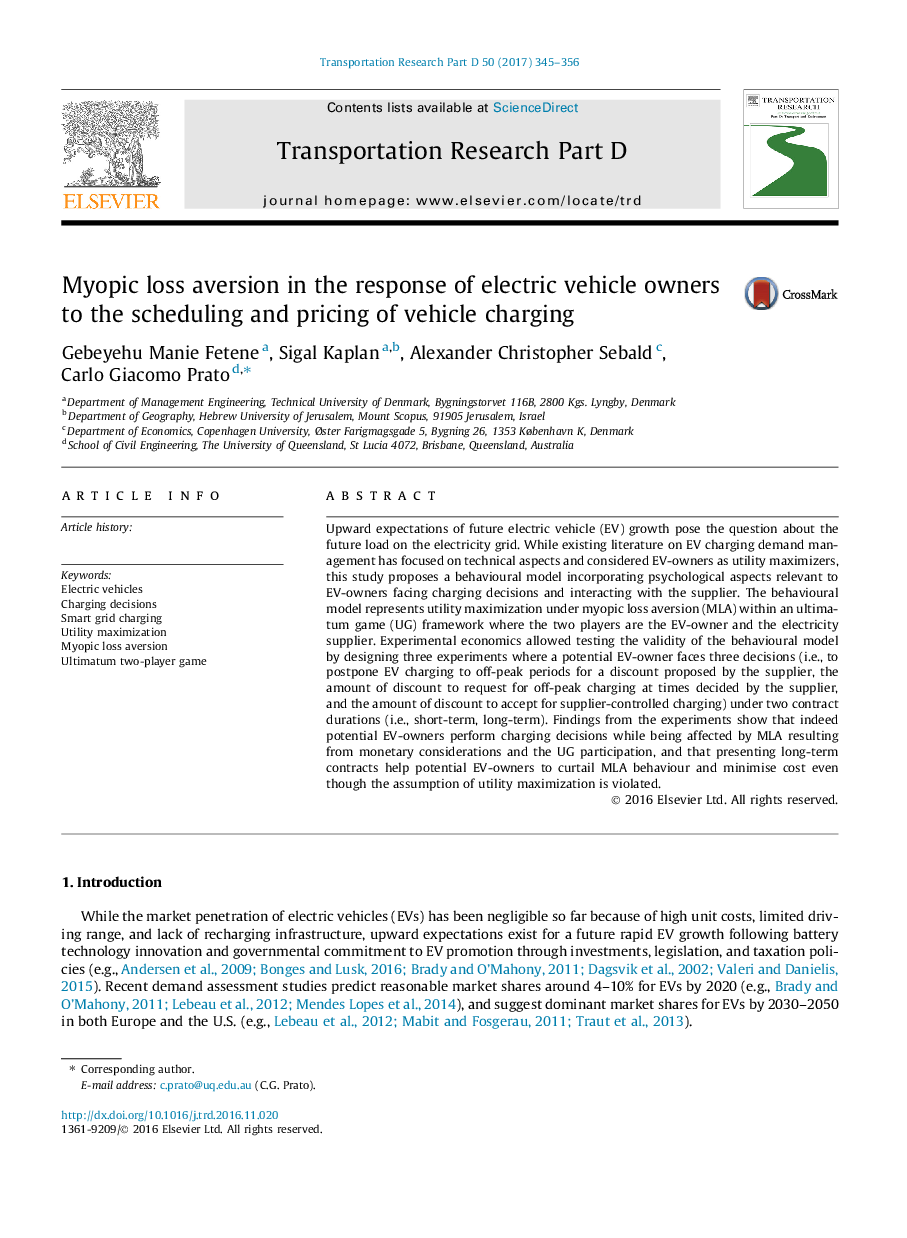| Article ID | Journal | Published Year | Pages | File Type |
|---|---|---|---|---|
| 5119476 | Transportation Research Part D: Transport and Environment | 2017 | 12 Pages |
Abstract
Upward expectations of future electric vehicle (EV) growth pose the question about the future load on the electricity grid. While existing literature on EV charging demand management has focused on technical aspects and considered EV-owners as utility maximizers, this study proposes a behavioural model incorporating psychological aspects relevant to EV-owners facing charging decisions and interacting with the supplier. The behavioural model represents utility maximization under myopic loss aversion (MLA) within an ultimatum game (UG) framework where the two players are the EV-owner and the electricity supplier. Experimental economics allowed testing the validity of the behavioural model by designing three experiments where a potential EV-owner faces three decisions (i.e., to postpone EV charging to off-peak periods for a discount proposed by the supplier, the amount of discount to request for off-peak charging at times decided by the supplier, and the amount of discount to accept for supplier-controlled charging) under two contract durations (i.e., short-term, long-term). Findings from the experiments show that indeed potential EV-owners perform charging decisions while being affected by MLA resulting from monetary considerations and the UG participation, and that presenting long-term contracts help potential EV-owners to curtail MLA behaviour and minimise cost even though the assumption of utility maximization is violated.
Related Topics
Life Sciences
Environmental Science
Environmental Science (General)
Authors
Gebeyehu Manie Fetene, Sigal Kaplan, Alexander Christopher Sebald, Carlo Giacomo Prato,
